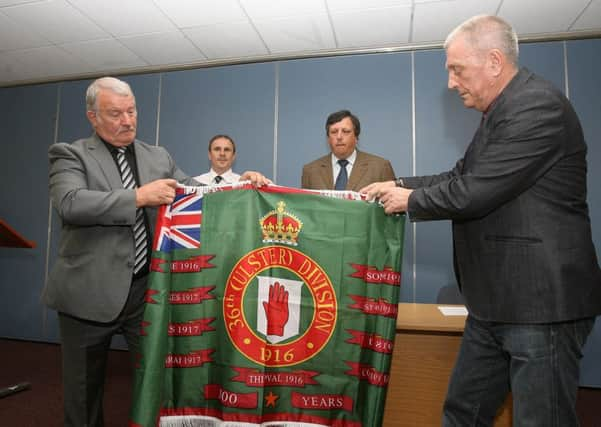Trevor Ringland: There is no '˜loyalist' link to Ulster Division


I’m afraid that is to miss the point which I raised.
The loyalist paramilitary groups which emerged in the 1960s and 70s have no connection to the 36th Ulster Division, other than their place of origin.
Attempts to link the two eras demean soldiers who fought bravely in the 36th’s ranks.


Advertisement
Hide AdAdvertisement
Hide AdThe division was part of a wider Irish contribution to the war, which included the 10th and 16th Divisions, all part of the British Army.
Everyone, from whichever background, has a right to remember the bravery of those who served in the war and to contribute to commemorations. That doesn’t mean that paramilitary groups who may tarnish the reputations of regular soldiers have the right to misleadingly link their movements to the Somme.
It’s right to look at the appropriateness of the involvement of certain groups and ask whether they would create a better environment for reconciliation in the community, by stepping back.
Our society might also benefit from a debate about ‘loyalist’ identity.


Advertisement
Hide AdAdvertisement
Hide AdDavid Campbell’s letter demonstrates how that self-description has been deliberately confused by paramilitaries, present and former, as well as some speaking on their behalf.
Loyalism can become an identity which embraces the future in an open and inclusive way, but it could also become an exclusive identity mired in victimhood and fear.
During the Great War, soldiers from the UK and other nations paid a heavy price for flawed leadership and politics. That is one legitimate parallel with more recent history in Ulster.
Trevor Ringland, Holywood